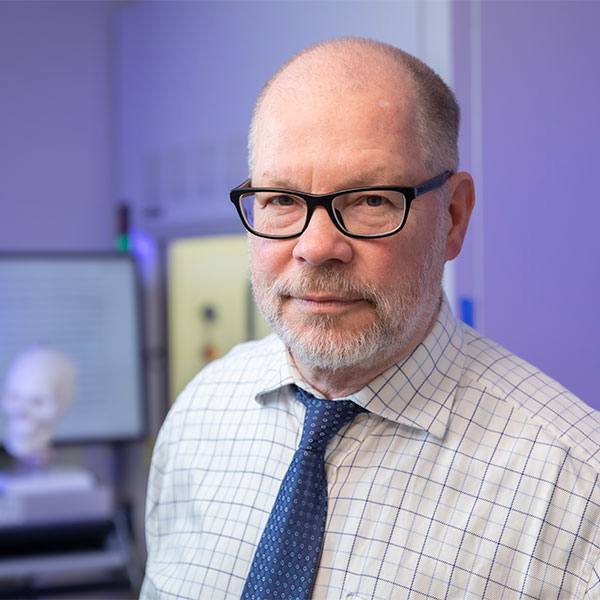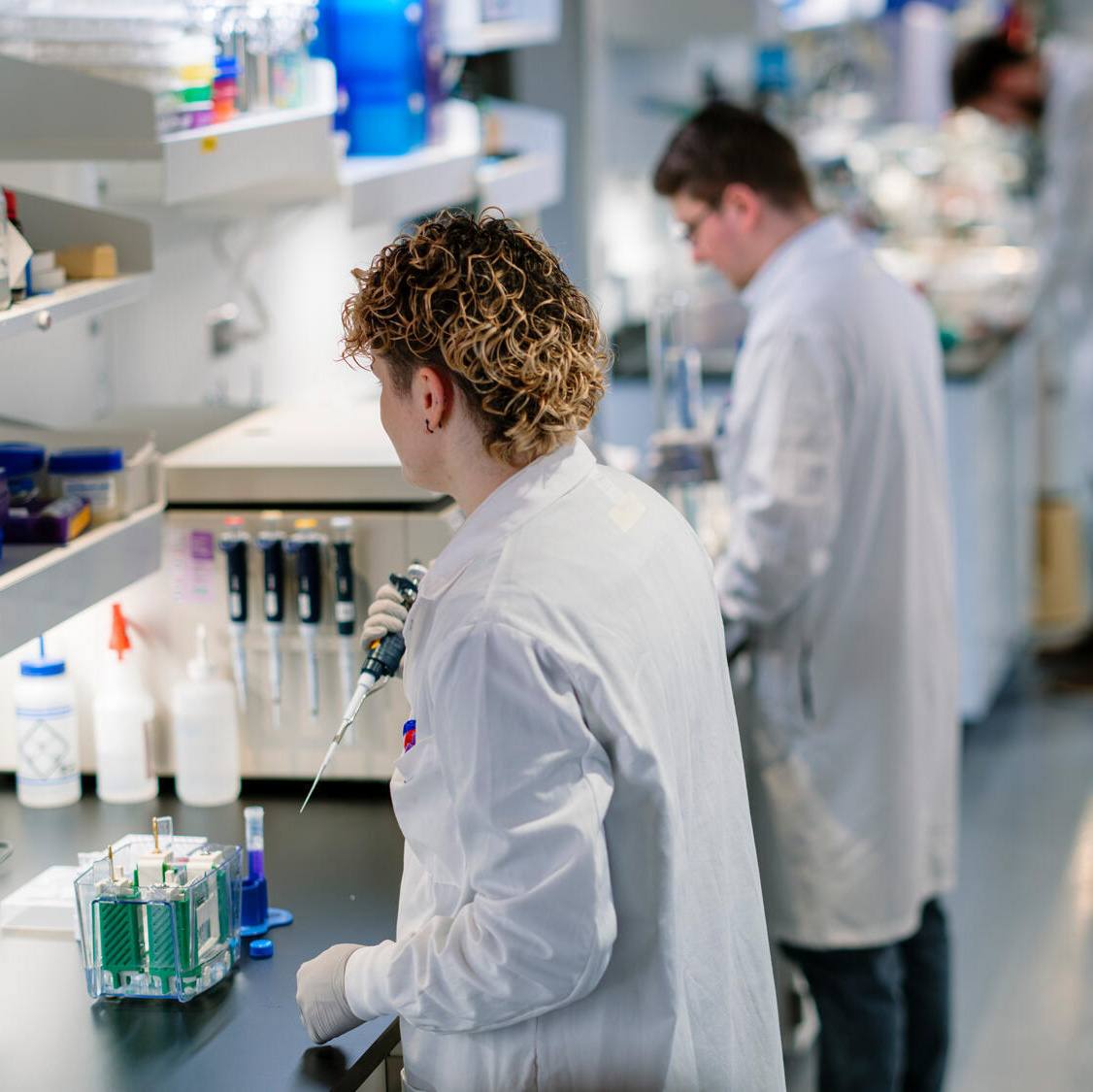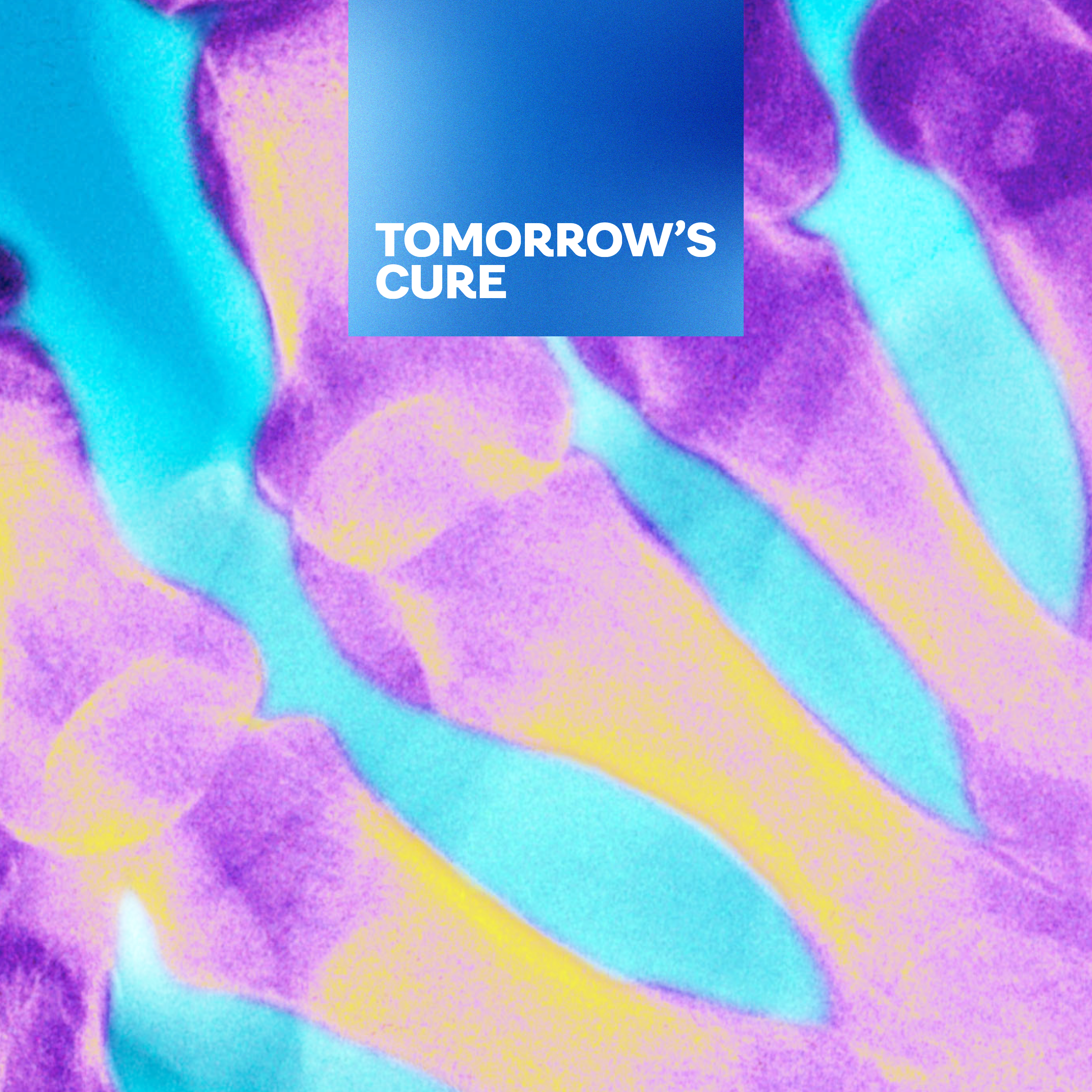-
Research
Meet Margot Cousin, Ph.D.: Genetic detective, researcher, member of the A-team

When a young boy arrived at Mayo Clinic after repeatedly experiencing infections that caused a fever and a rapid loss of liver function, clinicians turned to genetic testing to find the cause of the illness. Margot Cousin, Ph.D., a translational genomics researcher in the Mayo Clinic Center for Individualized Medicine Translational Omics Program was among the initial team that reviewed the genetic test results that discovered a genetic variation linked to the patient’s condition. After collaborating with researchers worldwide, the team found three other children with this very rare disorder, known as pediatric recurrent acute liver failure (RALF) caused by alterations in the gene RINT1.
As one of the recipients of the 2019 Afdhal / Hutchison LIFER Career Development Award for translational liver research from the American Association for the Study of Liver Disease (AASLD), Dr. Cousin will continue the search for answers. Working as a genetic detective, she hopes to uncover the underlying mechanisms causing this liver disorder, with the goal of identifying potential ways to restore liver function and prevent future liver failure. Her findings could also shed light on more common liver diseases.
Here’s a closer look at how Dr. Cousin and her colleagues sought answers for this patient.
Determining how a genetic change is triggering liver failure
According to Dr. Cousin, each of the four affected children with RALF has similar symptoms when they have an infection with fever.
“During these episodes, the young patients have an enlarged liver and a loss of liver function. Since the liver plays a key role in blood clotting, the disorder also puts them at risk for serious bleeding complications,” explains Dr. Cousin. “Imaging tests also reveal that each of these kids have some abnormalities in their bones.”
The affected children each have two alterations in the RINT1 gene, one inherited from each parent, and that’s where Dr. Cousin is looking for answers.
After publishing their initial findings about the disorder, the researchers are now using cellular biology and advanced genomics and proteomics technologies to analyze patients’ cell samples to better understand how these genetic variants in RINT1 trigger liver failure during illness.
“This is an extremely rare disorder, and to date, no one has identified the role of RINT1 in human disease or why it is particularly critical to liver function,” says Dr. Cousin. “By investigating this rare condition, we may also learn about whether this gene contributes to liver failure more broadly, uncovering underlying mechanisms driving more common liver diseases.”
Testing potential treatments to restore liver function

While physicians are able to reduce fever and restore liver function in affected individuals with supportive treatments, there is no curative therapy – the episodes repeat with each infectious illness.
Dr. Cousin hopes to find a treatment that can stop this recurring cycle.
“We have identified that the genetic variations in these children cause them to have a deficiency in the RINT1 protein. As part of the research planned under this career development award, I will evaluate whether increasing the amount of this protein may restore and maintain more normal function in cell samples, with the goal of developing more effective therapies.”
“Dr. Cousin’s research offers hope for patients with this rare disorder. Moreover, this new knowledge may be helpful to other patients with more common types of liver disease,” adds Konstantinos Lazaridis, M.D., William O. Lund, Jr., and Natalie C. Lund Director, Center for Individualized Medicine Clinomics Program. “We want to restore and maintain healthy liver function and prevent the serious, potentially life-threatening complications that can occur with acute liver failure.”
Dr. Lazaridis will contribute his expertise in liver disease research and individualized medicine as Dr. Cousin’s mentor for the AASLD award research.
All in a day’s work

This search for answers is all in a day’s work for Dr. Cousin and her colleagues in the Translational Omics Program, which brings together an “A-Team” of experts that include clinicians, geneticists, bioinformaticians and genomics researchers to solve cases of complex, undiagnosed disease.
“Cases like the young child with RALF are brought to the Center’s team of experts on the Genomic Odyssey Board. The group reviews clinical findings, DNA test results and the latest research discoveries to find answers for patients,” explains Eric Klee, Ph.D., director, Mayo Clinic Center for Individualized Medicine Translational Omics Program. “This collaborative model has helped us to find answers for approximately 30% of patients. We also continue to develop new tools and technologies that will help us solve even more cases.”
Dr. Cousin’s Mayo Clinic journey began with a six-month undergraduate internship. After graduation she joined the Mayo Clinic Cytogenetics lab as a cytogenetics technologist. “I had a front row seat to seeing how clinical testing was used to uncover the underlying genetic changes driving many diseases.”
After earning a doctorate in Clinical and Translational Science in the Mayo Clinic Graduate School of Biomedical Sciences, she joined the Translational Omics Program within the Center for Individualized Medicine.
“Now I have the best of both worlds — I investigate and discover answers for patients who have been unable to determine the cause of their disease by using cutting-edge technologies, while working with experts across medical and research specialties,” she says.
Stay informed
Want to read more stories like this one?
Register to get weekly updates about new stories on Mayo Clinic Center for Individualized Medicine blog.
Join the conversation
For more information on the Mayo Clinic Center for Individualized Medicine, visit our blog, Facebook, LinkedIn or Twitter at @MayoClinicCIM.







